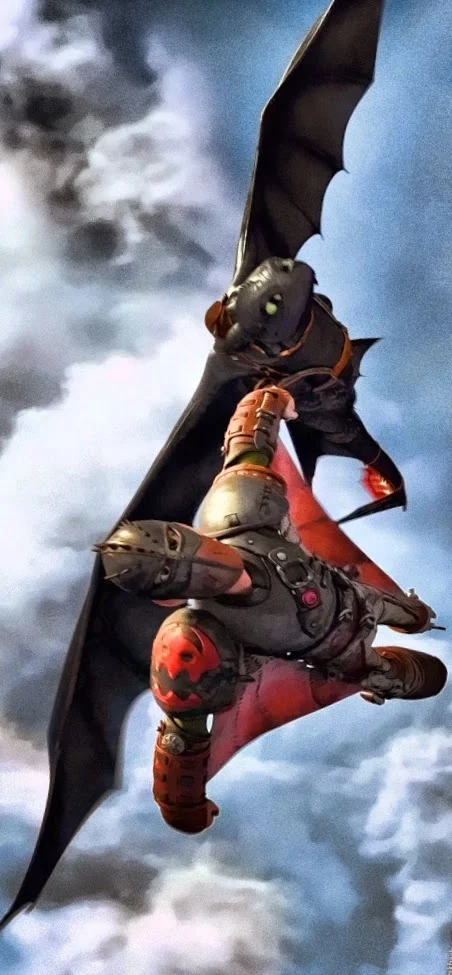Beauty
is a beast
Noel
Vera
“Sh--the
movie, she is starting.”
“What
is the title again?”
“I
told you already--Beauty and the Beast--La Belle et la bete.”
“We
are in a 3-D multiplex, not an art house theatre. One does not ask
for canard
à la rouennaise in McDonald's.”
“What
is that onscreen? A cathedral window?”
“It
is stained glass--they are trying to tell the story of the prince.”
“They
are boring me to death.”
“They
are attempting a Gothic look, with colors a la Notre Dame.”
“I
have seen better color on a comic book--Jean Giraud, Georges Remi.
What is happening now?”
“That
is Belle.”
“But--she
is singing! I do not remember Josette Day singing in the film!”
“I
have told you, this is not Cocteau, this is a Disney film.”
“What
is that? A singing suppository?”
“That
is a candle. He is named Lumiere. He is voiced by Jerry Orbach.”
“He
has a very pleasant voice...but why would a suppository sing?”
“He
is not a suppository, he is a candle.”
“I
remember Cocteau's chandeliers--they were lovely and not a little
frightening.”
“I
know.”
“I
do not think I can be frightened by a singing suppository.”
“I
imagine it would depend on what it is singing.”
“Is
that chamberpot singing?”
“That
is a teapot.”
“Then
why does it look like a chamberpot?”
“That
is a teapot.”
“Yes,
and you told me earlier the suppository is a candle.”
“It is a candle, you idiot!”
“Who
are you calling an idiot? You thought that chamberpot served tea.”
“Will
you please be quiet?”
“I
would like to see you sip from that cup.”
“Quiet!”
“You
will need more than a lump of sugar to sweeten that brew, monsieur.”
“Sh!”
“Why
do they sing so much?”
“I
think they are supposed to be enchanted.”
“They
sound as if they had suppositories stuck up their--”
“Sh!”
“Cocteau's
film, now that is enchantment. He did not need color, he did not need
any damn singing, he used just simple magician's tricks onscreen so
there is no cheating--”
“Sh!”
“This
movie, it tries too hard. Cocteau was a lazy bastard and had no money
because he made his film just after the war, but he was smart enough
to figure out how to do things on-camera simply and on the cheap--”
“Sh!”
“Why
is that camera swooping when they dance? What is this with the camera
swoop--does it enhance the dancing any? Did the cameraman transform
into a chimpanzee and start swinging from the chandeliers?”
“Will
you please be quiet?”
“This
is La Belle et la bete, no? This is not La Planète des singes.”
“I
assure you, I cannot answer for the cameraman.”
“Who
is that?”
“That
is Gaston, Belle's fiance and the beast's rival.”
“He
is funny, a little. If I were her, I would forget that bore of a
beast and choose him, instead.”
“He
is okay.”
“The
beast here is so dreary and sullen, a lump of lifeless fur. At least
Jean Marais as the beast in Cocteau's film was magnifique. Even Greta
Garbo thought so.”
“I
think so.”
“Marais
was dressed and made up like a princely medieval Minotaur, with
coiffed hair and beard. He was fabulous, a figure from out of The
Arabian Nights visiting a story in The Decameron. Half man,
half beast; half real, half myth.”
“How
poetic.”
“'Give
me back my beast!' Garbo said. She did not care for Jean Marais' real
face at all.”
“Neither
do I.”
“Even
if Marais was stunning in real life.”
“I
know.”
“They
can keep this beastly bore that resembles a castrated bison. Gaston,
he at least knows what he wants (the girl) and is amusing. Or give me
Cocteau's beast and they can keep all the rest.”
“Certainly.”
“Give
me back my beast!”
“Sh!”
“Why
are the townfolk carrying torches?”
“I
do not know.”
“Do
they intend to eat the beast?”
“I
do not think so.”
“I
think so. All those torches--it looks as if they plan to roast him.”
“I don't
know--”
“They
are such idiots. Everyone knows that bison is most tender when
braised.”
“Yes,
but please--”
“Boeuf
bourguignon--beef braised in burgundy, with mushrooms and root
vegetables, perhaps some boiled potatoes, or butter noodles...”
“You
are making me hungry.”
“I
am already hungry, just looking at that two-legged beefsteak.”
“Sh.”
“'Braise
the beef!'”
“Sh!”
“I
am just singing along with the people onscreen--”
“Will
you be quiet?”
“Did
Gaston just fall from a great height?”
“Please
be quiet!”
“Why
do Disney villains always fall from a great height? It is as if the
filmmakers do not want to give the hero the responsibility of kicking
his arse.”
“Sh!”
“They
would rather drop him out of sight. How convenient.”
“Sh!”
“So...want
to know what I think of the movie?”
“You
have not stopped telling me what you think of the movie.”
“You
have not stopped shushing me.”
“Because
you have not stopped talking, you hind leg of a quadriplegic.”
“Who
are you to talk to me like that, you waver at others' faces of
laughably small charcuterie? In 3-D, no less.”
“Savor
the scent from my armpits.”
“Suck
the brie from between my toes, you canted connoisseur.”
“May
you have an accident in the shape of an umbrella.”
“May
your testicles be tenderized by a fifty-pound mallet.”
“May
you sit on a broomstick.”
“So
did you like the movie?”
“Well--no.”
“You
did not like the songs?”
“They
loosened the wax in my ears.”
“But
the animation? Did you not find it colorful and amusing?”
“Like
the daubings in a toilet stall.”
“Not
even in 3-D?”
“Aggravated
my astigmatism.”
“Then
we have no quarrel?”
“Not
with each other.”
“Shall
we, then?”
“Why
not?”
“Fetchez
la vache!”
(With
apologies to Terry Gilliam, Terry Jones, Eric Idle, Graham Chapman,
Michael Palin, John Cleese)















